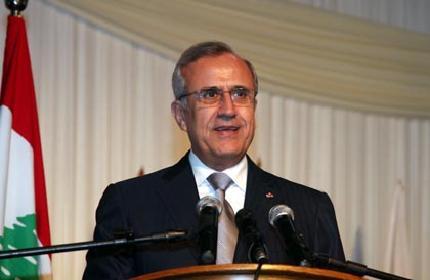Suleiman Responds to WikiLeaks Cable: Relation with Hizbullah Based on Cooperation
إقرأ هذا الخبر بالعربية
President Michel Suleiman has warned of the information contained in the latest WikiLeaks cables published by Lebanese daily Al-Akhbar "which largely lack accuracy and credibility and are mainly based on conclusions, curtailment and the citation of a third party," the presidency's press office announced Sunday.
"Some of these leaks are part of a systematic campaign aimed at causing divisions and deepening the rift among citizens and political groups," the press office added in a statement.
"The president stresses that his stances on the national issues stem from his beliefs, principles and role in preserving the homeland's highest interest," said the statement.
It described Suleiman's relation with former president Emile Lahoud as "built on admiration and appreciation."
"His relation with all groups and parties, including Hizbullah, is fine and is not based on rivalry and hostility, but rather on coordination and cooperation," the presidency's press office went on to say in its statement.
In a U.S. diplomatic cable published Saturday by Al-Akhbar and filed by the U.S. embassy in Lebanon on April 6, 2009, the then defense minister Elias Murr quotes Suleiman as saying he would fight Hizbullah until the end and that the only gift granted by the Shiite party to him was the presidency.
Murr attributed Suleiman's stance to his dismay with Hizbullah's support for the Free Patriotic Movement candidate in the Byblos area during the 2009 parliamentary elections, in which pro-president candidate Nazem al-Khouri was competing.
Al-Akhbar's sporadic choice of cables to publish and the related timing leaves a lot to be desired. They have probably paid a fortune to get access to them for obvious reasons.
Their translations are worthless as long as they do not show the authentic original cables.
Cables are based on reports of the ambassadors and are not necessarily accurate. The people who spoke under confidentiality are bound to speak their minds or tell the US what they like to hear.
We would be curious to hear what the March 8 people talk to the Syrians and the Iranians in their private meetings.



